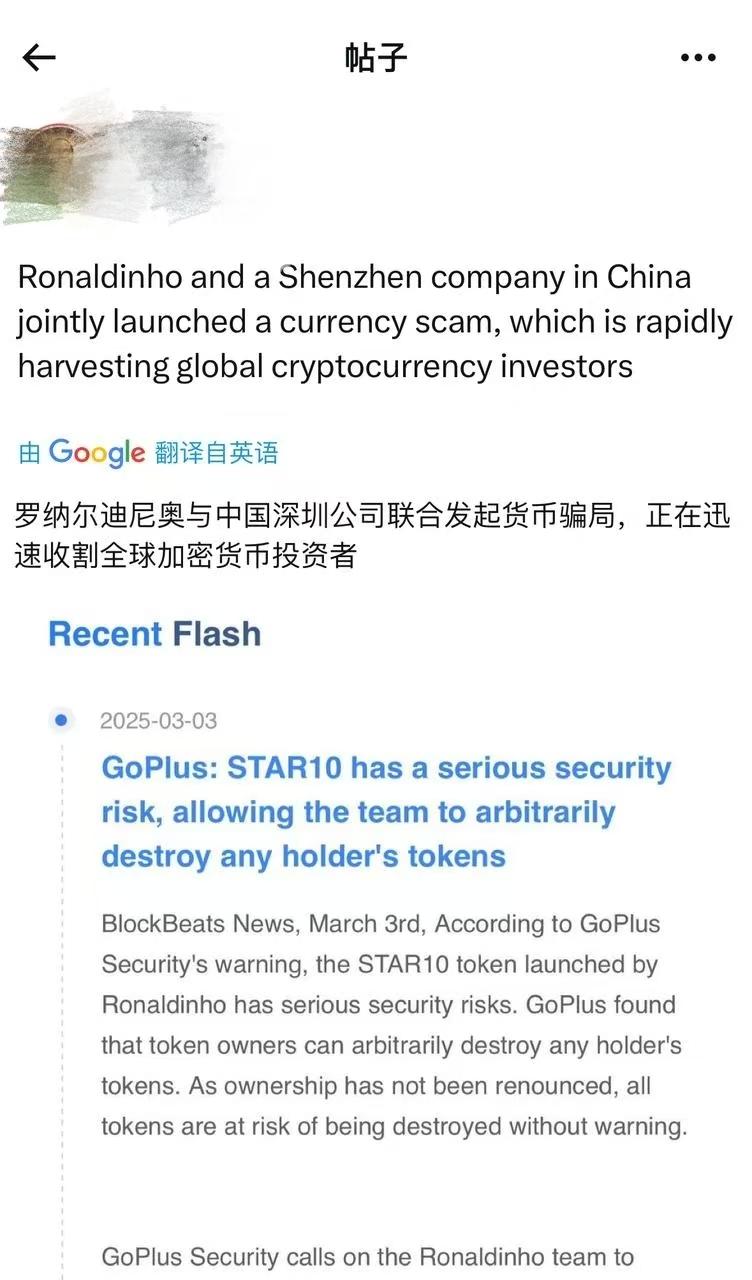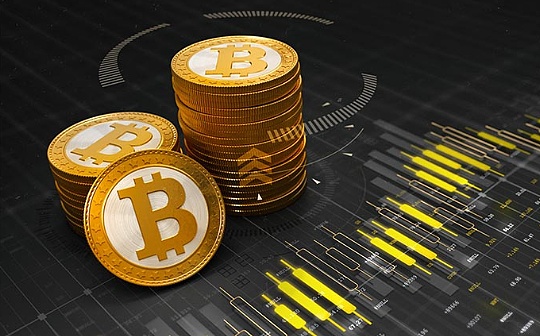"King of Ball" Ronaldinho is deeply involved in the issuance of coins. How can crypto players not be cut off?

Reprinted from panewslab
03/05/2025·1MRecently, an incident has been in full swing again! According to X platform user @R10coin_, football superstar Ronaldinho is suspected to have "turned off" - he first signed a $6 million token cooperation agreement with a team and received a deposit of 3 million. As a result, he turned around and sold his X account to a "coin issuing factory" in Shenzhen for $5 million to help others sell another cryptocurrency. What's even more outrageous is that this Shenzhen company is accused of sending out more than a dozen "meme coins" every month, fooling investors by exaggerating publicity, then pulling and smashing the market, and running away after harvesting within an hour. This plot is more exciting than the "person-ball score" on the court!

As a Web3 lawyer, I will tell you today whether this "coin issuing factories" routine is a fraud? Is it enough to be a criminal offense? How should ordinary investors keep their eyes open and avoid being harvested?
The "coin issuing factory" routine: it sounds like a scam, but also looks
like a scam.
Let’s talk about the operation of this Shenzhen company: launch more than a dozen "meme coins" every month, using splashy publicity (such as "Next Dogecoin" and "Wealth Freedom Express") to attract people to pay, and then quickly raise the price of the coin. When investors rushed in, they smashed the market hard and swept the money away. Does this "quick pull and smash" model sound familiar?
Yes, it is commonly known as "cutting leeks" in the currency circle.
From a legal perspective, this kind of behavior is most likely to be suspected of "fraud". What is the core of fraud? Simply put, it is "scam people to pay money (deception methods + subjective intention) + others' blood loss + social harm." Specifically speaking of the provisions of China's Criminal Law on fraud, fraud refers to "the act of defrauding public and private property by fabricating facts or concealing the truth for the purpose of illegal possession." Let's disassemble it:
1. Fictional facts or conceal the truth : These "meme coins" often have no practical value, and do not even have a decent technical white paper. They rely entirely on "celebrity stands up" and "dreams of getting rich". The propaganda is so scattered that it is actually air. Isn’t this a “fictional fact”?
2. Purpose of illegal possession : pull the market and attract people to buy it, smash the market and run away. This is obviously to make money by yourself, rather than to do a project sincerely.
3. Defrauding property : Investors' money enters their pockets, but the coins are smashed into air, and they end up losing all their money.
If the evidence is conclusive, this behavior will definitely constitute the crime of fraud! Not to mention that it may involve "illegal fundraising" or "pyramid scheme crimes" - after all, this "pull of people" and "fast in and out" model is simply twins with pyramid schemes.
Ronaldo’s “stage failure”: unintentional assistance to the evil or
deliberately “bring goods”?
Let’s talk about Ronaldinho. If the above-mentioned information is true.
He first signed a contract with @R10coin_, and then cooperated with the Shenzhen company behind his back, and sold the X account to others as a "promotional tool". Is there any legal risk in this matter?
If Ronaldinho knew that the other party was a fraud gang and helped to attract people, it would undoubtedly be a "accomplice" and might be held accountable for the joint crime of fraud. But what if he just took the money and tweeted, he was completely unaware of it? Then he is at most a "used tool person" and may not be held accountable directly by law. However, civil liability cannot be escaped - if the contract was signed at the beginning was more thoughtful, @R10coin_ could sue him for breach of contract and demand compensation for the losses.
But then again, will an international superstar really not know the tricks of these "meme coins"? Friends who have been involved in the currency circle know that this "celebrity effect" is often a common trick of fraud gangs. When investors saw celebrities standing on the platform, they paid for it when they felt hot. As a result, the idol patted his butt and left, leaving behind a mess. I feel that I want to use the currency circle as an ATM now.
So, no matter whether Ronaldinho did it on purpose or not, his "fallback" reminds us: endorsement of celebrities does not mean reliable!
Having said that, the currency circle is played like this, and regulators can't do it without tidying up.
What should investors do? Don't let the "Dream of Richness" blindfold you
Seeing this, you may ask: "Lawyer, I just want to make some quick money. What are the "proof cutting tips"?" Don't worry, I'll give you a few tricks to protect the safety of your wallet:
1. Don’t believe in the “celebrity effect” : Whether it is Ronaldinho or other big Vs, the platform does not mean that it is reliable. Check the project background, look at the white paper and technical team, and don’t just listen to brags.
2. Beware of "pull quickly and smash quickly" : If a coin soars as soon as it is launched, and the publicity still shouts "Missing this village but not this store", it is probably a trap. The real project is not so urgent.
3. Play with fun, don’t all in : I can play if I want to play, but don’t put all my money on it. Invest in pocket money, lose as a lesson, and win as a profit.
4. If you are cheated, call the police. Don’t delay : If you find that you have been cheated, don’t hesitate and call the police directly. Keep transfer records and chat screenshots, and get more evidence if you can get. The police rely on all this to solve the case.
Conclusion: The currency circle is deep, and caution is the king
Ronaldinho's "coin issuance storm" this time is just a microcosm of the chaos in the currency circle. Those "coin issuing factories" have tricked countless dream-chasing people through false propaganda and rapid harvesting.
Although the law has a "tightening curse" - various crimes apply completely to certain behaviors, China's attitude towards cryptocurrency investment is at its own risk. Many scams are also taking advantage of this issue. If you invest in cryptocurrencies such as USDT, you may not guarantee that you will be able to recover them if you call the police.
Therefore, investors' own awareness of prevention is the first line of defense.
Friends, when many people regard the currency circle as cash machines, we should not become a harvesting ground for "IQ tax". If you are buying lottery tickets and having a psychological entertainment, you can do it, but don’t take the “dream of getting rich” seriously. Keep your eyes open, cover your wallet tightly, and don’t let your hard-earned money turn into someone else’s sports car mansion. After all, Ronaldo on the court can shake his opponent. In reality, you should not be dizzy by the "coin issuing factory".


 jinse
jinse
 chaincatcher
chaincatcher